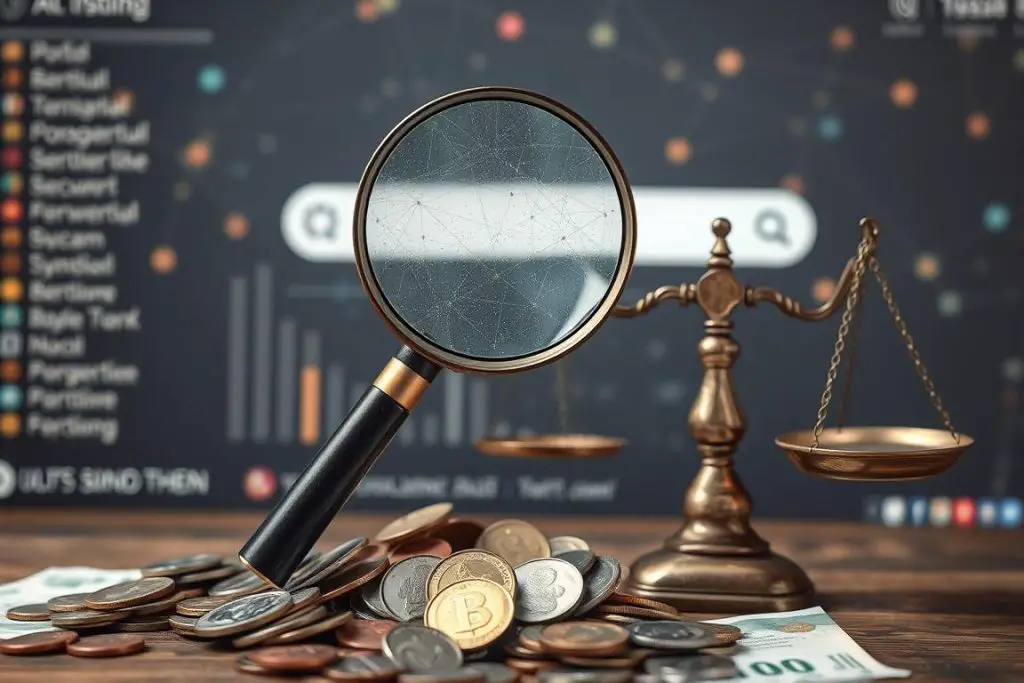Don’t Miss Out! Find Out If You Have Unclaimed Money That You Can Easily Access Today

Picture this: a treasure chest filled to the brim with unclaimed cash, maybe even gold, all with your name on it. Across New York State, billions of dollars remain unclaimed. Could some of that money be yours? Imagine turning inactivity into action as these funds revive dormant accounts and neglected wealth reclaim lost funds. Claiming what’s yours could be as simple as a few clicks away, moving money from a database directly into your hands. Yes, it’s for real, and it might just be waiting for you to claim it.
Finding unclaimed funds is like discovering cash in an old jacket—except on a much bigger scale. All it takes is a little push of awareness to find lost money. The best part? There’s no deadline to claim it. It doesn’t matter if it was lost in the 1940s or just a couple years back, the opportunity to claim still stands1. Although time keeps moving, you still have the chance on your side to reclaim lost funds.
Key Takeaways
- There’s a treasure trove of unclaimed funds that could belong to you, with no expiration on claims.
- For an effective unclaimed money search, utilize government and reputable private databases.
- Reclaiming lost funds is a state-specific process that is usually free of service fees1.
- With 1 in 10 Americans having unclaimed property, it’s worthwhile to see if you are one of them2.
- Unused gift cards are common sources of unclaimed money—with billions going unredeemed annually2.
Understanding Unclaimed Money and How It Can Benefit You
Did you know you might have unclaimed assets? Unclaimed money comes from things like forgotten accounts and insurance policies. It could be growing in your name without you knowing it.
What Exactly is Unclaimed Money?
Unclaimed money is cash or assets that banks, companies, or the government owe to someone but haven’t been claimed. This includes unclaimed cash, untouched funds in old bank accounts, and unreceived stock dividends. Surprisingly, about 1 in 7 people in the U.S. might have unclaimed assets3.
Common Sources of Unclaimed Funds
The list of where unclaimed money comes from is long. It includes inactive bank accounts, unpaid insurance money, uncashed checks, refunds, and more. In the U.S., state treasuries hold billions in unclaimed property3. Accounts become “abandoned” if no one has touched them or reached out to the owner in a year or more3.
Helpful organizations like MissingMoney.com and Unclaimed.org make it easier to find lost funds4.
The Legal Aspect: Claiming Money as a Heir
If you’re claiming unclaimed funds as a legal heir, you need to know the legal steps. This helps get the assets of deceased relatives to the right person. You’ll need to show proof and other documents to claim these funds.
Think you have unclaimed funds out there? Start by looking on official sites like Unclaimed.org and TreasuryHunt.gov to search or claim as a legal heir4.
Start your search for missing funds today. You could find wealth you didn’t know was yours. Once you claim it, think about investing it smartly. Consider a high-yield saving account at places like Marcus by Goldman Sachs or SoFi4.
Claiming Unclaimed Funds: A Step-by-Step Guide
Starting your search for unclaimed money is easy but needs focus. Follow these steps to find and claim your lost money. This will help you get back what is yours.
Begin by looking for any funds under your name. Use sites like Treasury Hunt or HUD for FHA refunds. Just type your name in the search box on the Search for Lost Money page. You might find money you didn’t know about5.
After finding possible funds, check who owns them. Some assets might have more than one owner, like in joint accounts. Make sure the name listed is yours. This confirms you can claim the money5.
To claim your money, you’ll need to do a few things:
- Fill out a form online or by mail. Include your Social Security number to show who you are5.
- Add documents like your ID and proof you’re linked to the money56.
- If you’re mailing documents, they need to be notarized. Send them to the right office as the unclaimed funds department says75.
After sending your claim, the office will look it over. This can take up to 12 weeks. They might ask for more papers to check everything. Be quick to send what’s needed so you don’t wait longer6.
Knowing what to do helps a lot. Look at the unclaimed funds website for guides and what you need5. This makes claiming smoother.
When your claim gets the green light, you’ll get your money by check or direct deposit. Remember, the money can’t go to foreign banks if it’s a direct deposit6.
The process to get your unclaimed money may seem complex, but it’s easier if you know how. Be patient and thorough, and you can get your money back.
How to Safeguard Yourself Against Unclaimed Money Scams
When looking for missing money, be aware of scams. It’s key to learn the difference between real resources and fake ones. This is your first step to safely claim what’s yours without being tricked.
Identifying Legitimate Unclaimed Property Sources
Use sites like unclaimed.org and missingmoney.com for a risk-free search. These sites are backed by the NAUPA and NAST, and they offer free searches8. Don’t trust services that charge fees. Claiming money should be free if you go through state or official paths8.
The Truth About “Finder’s Fees” and Paid Services
Watch out for companies asking for a finder’s fee to get unclaimed cash. These businesses might not do much more than you can do for free9. Always check if a company is legit before giving them your personal info9.
Government Resources and Official Databases
For secure claims, start with official resources like the Treasury Hunt or HUD for FHA refunds10. Tennessee’s Treasury website, for example, helps find unclaimed assets without charging you10. The National Credit Union Administration and the U.S. Bankruptcy Unclaimed Funds Locator are also good choices9.
An informed search is a safe one. Always use endorsed databases for your search. Keep your data safe and be skeptical of offers that seem too good to be true. This way, you can claim your money without facing risks.
Conclusion
Looking for unclaimed money is more than finding extra cash. It’s about getting back what’s yours. Knowing where these funds come from and how they end up with the state is key. Every month, the State Controller’s Office updates their records, so keep checking back11.
Searching for lost funds can take you online or require you to reach out by phone or mail. These databases are available 24/7, making it easy to look whenever you want11. If online searches don’t work, sending a letter is also a good choice11. Sometimes, technical problems may hide your funds, but there are ways to fix this and get your money11.
When it’s time to claim, the State Controller’s Office helps with online filing and guides. This help is for owners, heirs, or businesses12. If your claim is over $1,000, getting it notarized is crucial. This proves your claim is legit12.
In today’s world, staying alert and informed can bring great results. Claiming unclaimed money requires careful attention and patience. Yet, it’s a rightful claim. It asserts your ownership and can boost your finances.
FAQ
What Exactly is Unclaimed Money?
How Can I Conduct an Unclaimed Money Search?
What are Some Common Sources of Unclaimed Funds?
How Do I Claim Unclaimed Funds as a Legal Heir?
Are There Fees Associated With Claiming Unclaimed Money?
How Can I Identify Legitimate Unclaimed Property Sources?
What is the Truth About “Finder’s Fees” and Paid Services?
What Government Resources and Official Databases Should I Use?
How Long Does It Take to Claim Unclaimed Funds Once I Find Them?
How Often Should I Check for Unclaimed Money?
Source Links
- Unclaimed Money and Assets — TreasuryDirect – https://www.treasurydirect.gov/help-center/unclaimed-money-and-assets-faqs/
- 1 in 10 Americans have unclaimed money—here’s how to find your lost or forgotten cash – https://www.cnbc.com/select/how-to-find-unclaimed-money/
- What is unclaimed property? – National Association of Unclaimed Property Administrators (NAUPA) – https://unclaimed.org/what-is-unclaimed-property/
- You may have lost or forgotten cash in an old account — here’s how to find unclaimed funds – https://www.cnbc.com/select/unclaimed-funds-how-to-find-lost-money/
- Claims for Multiple Owners – https://www.osc.ny.gov/unclaimed-funds/claimants/claims-multiple-owners
- DOR Unclaimed Property – https://www.revenue.wi.gov/Pages/UnclaimedProperty/home.aspx
- Claiming Funds Video Resources – https://com.ohio.gov/divisions-and-programs/unclaimed-funds/claiming-funds/claimant-resources/claims-video-resources
- National Association of State Treasurers warns public of fraudulent unclaimed property contact attempts – https://treasurer.utah.gov/featured-news/national-association-of-state-treasurers-warns-public-of-fraudulent-unclaimed-property-contact-attempts/
- What Are Unclaimed Property Scams? – Experian – https://www.experian.com/blogs/ask-experian/what-is-unclaimed-property-scam/
- How to Prevent Unclaimed Property Fraud | Sovos – https://sovos.com/blog/trr/how-to-prevent-unclaimed-property-fraud/
- Guideline for Claiming Unclaimed Property – https://sco.ca.gov/Files-UPD/guide_upd_claiming.pdf
- Claim Filing Instructions and Forms – https://www.sco.ca.gov/upd_form_claim.html








